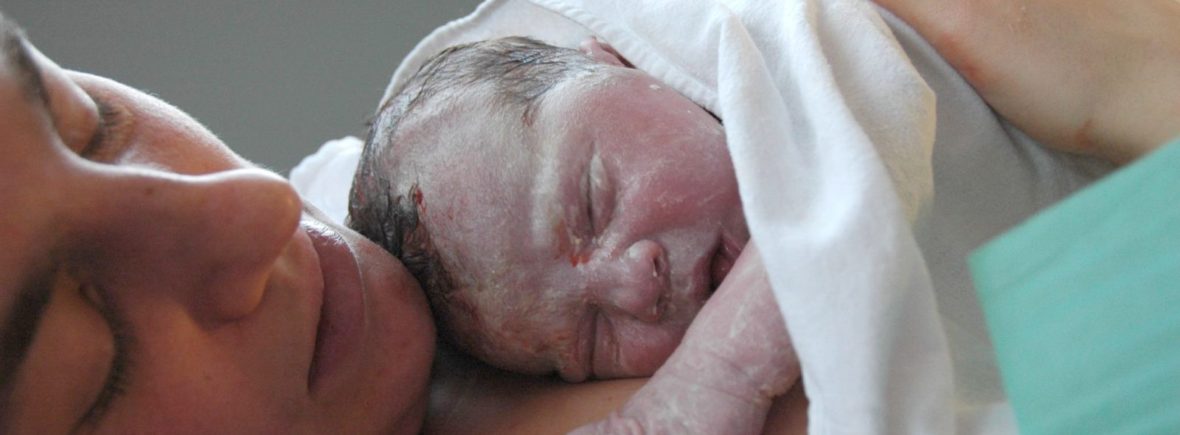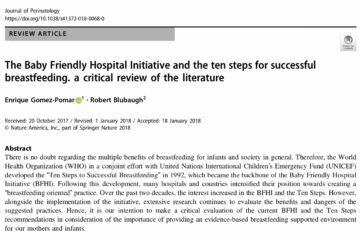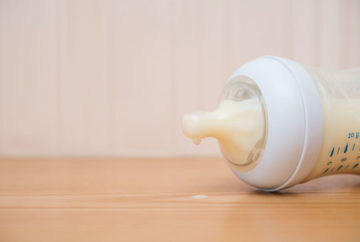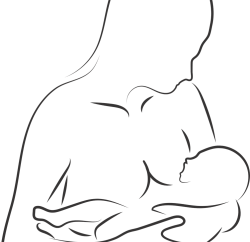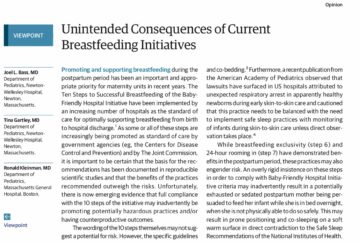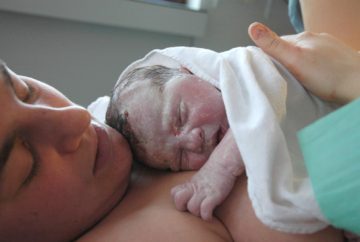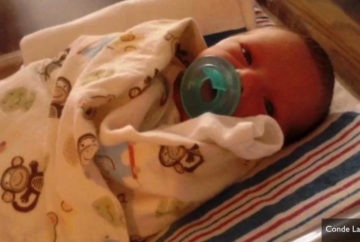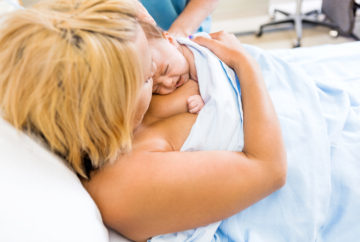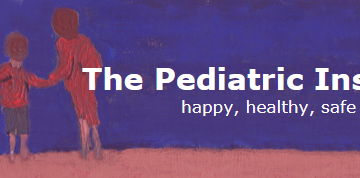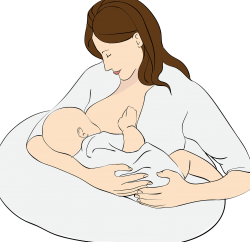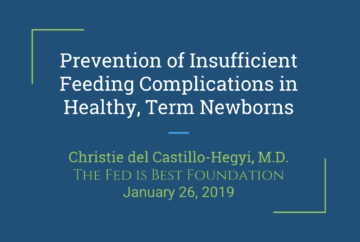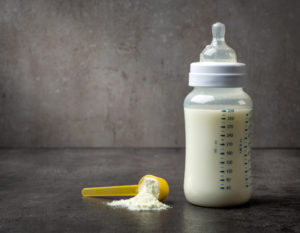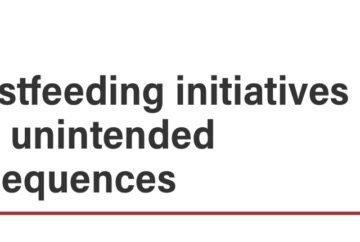Pediatrician and Other Physician Views on the Baby-Friendly Hospital Initiative
Pediatricians and other physicians are publishing and presenting their views about the ethical problems and safety issues of the Baby-Friendly Hospital Initiative and the World Health Organization breastfeeding policies in news media, peer-reviewed journals and national pediatric conferences. Here are a few examples.
The Baby Friendly Hospital Initiative and the ten steps for successful breastfeeding. a critical review of the literature
Enrique Gomez-Pomar & Robert Blubaugh Journal of Perinatology, Volume 38, pages 623–632 (2018) There is no doubt regarding the multiple benefits of breastfeeding for infants and society in general. Therefore, the World Health Organization (WHO) in a conjoint effort with United Nations International Children’s Emergency Fund (UNICEF) developed the “Ten Steps to Successful Breastfeeding” in 1992, which … Continue reading The Baby Friendly Hospital Initiative and the ten steps for successful breastfeeding. a critical review of the literature
Will the Tide Ever Turn on Breastfeeding?
Amy Tuteur, M.D. on January 29, 2019 “On the other hand, it is becoming increasingly clear that aggressive breastfeeding promotion has significant risks. There has been an increase in babies falling from their mothers’ hospital beds or suffocating. There has been a rise in serious harms to babies including dehydration, starvation, brain injuries, and even … Continue reading Will the Tide Ever Turn on Breastfeeding?
Another Year, Another Failed Breastfeeding Policy Push By WHO, UNICEF
Jamie Wells, M.D. “These WHO-UNICEF mandates to governments don’t address the fact that there are biological reasons a mother cannot breastfeed (in all parts of the world) or that she can be so poorly nourished herself because of the lack of refrigeration and clean water in the first place. Forcing a woman to breastfeed exclusively … Continue reading Another Year, Another Failed Breastfeeding Policy Push By WHO, UNICEF
Unintended Consequences of Current Breastfeeding Initiatives
By Pediatricians, Joel Bass, M.D., Tina Gartley, M.D. and Ronald Kleinman, M.D. “While breastfeeding exclusivity (step 6) and 24-hour rooming in (step 7) have demonstrated ben- efits in the postpartum period, these practices may also engender risk. An overly rigid insistence on these steps in order to comply with Baby-Friendly Hospital Initia- tive criteria may … Continue reading Unintended Consequences of Current Breastfeeding Initiatives
Breastfeeding Improvement Initiatives May Increase Risk of Newborn Falls
Pediatrician, Clay Jones, M.D. on January 11, 2019 Newborn falls during the postpartum period are a serious potential adverse event and are almost always a result of maternal fatigue. There is reason to be concerned that well-meaning but overzealous promotion of breastfeeding may increase the risk. “In 2016, I wrote a post on the risk … Continue reading Breastfeeding Improvement Initiatives May Increase Risk of Newborn Falls
Efforts to Encourage Breastfeeding Like the Baby-Friendly Hospital Initiative (BFHI) May Have Unintended Consequences
Harriet Hall on August 30, 2016 “Breast is best,” but current efforts to increase the rate of breastfeeding may be misguided. A recent article in JAMA Pediatrics by pediatricians Joel Bass, Tina Gartley, and Ronald Kleinman is titled “Unintended Consequences of Current Breastfeeding Initiatives.” They criticize the Baby-Friendly Hospital Initiative (BFHI), saying “there is now … Continue reading Efforts to Encourage Breastfeeding Like the Baby-Friendly Hospital Initiative (BFHI) May Have Unintended Consequences
Interventions Intended to Support Breastfeeding: Updated Assessment of Benefits and Harms
Valerie Flaherman, MD, MPH1; Isabelle Von Kohorn, MD, PhD “Counseling mothers to avoid giving infants any food or drink other than breast milk during the newborn period is step 6 of the BFHI and one of the primary care interventions most commonly used to support breastfeeding. Three randomized trials have specifically examined the effectiveness of … Continue reading Interventions Intended to Support Breastfeeding: Updated Assessment of Benefits and Harms
Closing Newborn Nurseries Isn’t Good for Babies or Moms
By Dr. Amy Tuteur, Obstetrician-Gynecologist February 11, 2016 I’m deeply disappointed to learn that the hospitals in my state, Massachusetts, are closing their newborn nurseries. It’s a submission to the entreaties of breastfeeding activists (lactivists), and doesn’t accomplish its stated aim. Most importantly, it’s unsafe. The Boston Globe explains that women can no longer leave … Continue reading Closing Newborn Nurseries Isn’t Good for Babies or Moms
The ‘Breast is Best’ Policy Backlash
By Elissa Strauss, CNN Updated 1:13 PM ET, Wed July 11, 2018 In addition to public education, Fed is Best is trying to prevent starvation-related complications through advocacy. These efforts are often met with resistance. In September, del Castillo-Hegyi and her team had a meeting with the World Health Organization to address some concerns about … Continue reading The ‘Breast is Best’ Policy Backlash
Commentary: Safety issues with skin-to-skin care must be acknowledged
Joel L. Bass, M.D., FAAP and Tina Gartley, M.D., FAAP The AAP report also sheds light on the serious issue of newborn falls in the hospital related to maternal sleeping during bed-sharing. The common link between SUPC events and newborn hospital falls is their association with mother-baby co-sleeping in the prone position. The potential relationship … Continue reading Commentary: Safety issues with skin-to-skin care must be acknowledged
Breastfeeding increases the risk of newborn readmission. Now what do we do?
The Pediatric Insider 2019 Roy Benaroch, MD An August 2018 paper in Academic Pediatrics found an unsettling conclusion: breast-fed newborns have about double the risk of needing to be hospitalized in their first month of life, compared to babies who were formula-fed. The numbers are solid, and they jibe with the real-life experience of many … Continue reading Breastfeeding increases the risk of newborn readmission. Now what do we do?
“Is Baby-Friendly Baby Safe?,” Fetus & Newborn Conference 2018
Video of Full Presentation available at Contemporary Forums on Demand. Las Vegas, Nevada — On September 6, 2018, the national neonatology conference, “The Fetus and Newborn Conference” was held in Las Vegas, Nevada. Among the speakers was Jay Goldsmith, M.D., Neonatologist and Professor of Pediatrics at Tulane University, Member of the American Academy of Pediatrics … Continue reading “Is Baby-Friendly Baby Safe?,” Fetus & Newborn Conference 2018
Stop the hyperbole when it comes to breastfeeding
Roy Benaroch, MD | Conditions | December 31, 2014 “We should be honest, here. We know that breastfeeding is the major risk factor for hypernatremic dehydration, which has been estimated to occur in about 2 percent of term newborns. This is caused by inadequate fluid intake in a newborn, and can cause seizures, brain damage, and death; it … Continue reading Stop the hyperbole when it comes to breastfeeding
Are Breastfeeding Messages Actually Hurting Mothers?
By Jamie Wells, M.D. — May 7, 2018 “At all costs” breastfeeding messages are a consistent refrain from policymakers to activist organizations. I would argue when they exclude discussion of formula, concomitant disease, realistic personal and infant challenges along with what is in the best interest of the family such well-intentioned directives are routinely misguided, … Continue reading Are Breastfeeding Messages Actually Hurting Mothers?
‘At All Costs’ Health Campaigns Undermine Women
By Jamie Wells, M.D. — August 21, 2017 Recently, I wrote about the misguided, alarmist efforts of the self-proclaimed Global Breastfeeding Collective composed of the WHO and UNICEF (see here). As a result of every country in the world not meeting the “breastfeeding standards” they set forth, instead of partaking in some self-reflection as to why … Continue reading ‘At All Costs’ Health Campaigns Undermine Women
Perspective on World Health Assembly Resolution Opposition by Pediatricians Alma Golden and Brett Giroir
By Pediatricians Brett Giroir, M.D. and Alma Golden, M.D. July 20, 2018 | 7:56pm Breastfeeding wasn’t in dispute in Geneva. Rather, we raised objections to an early draft of the resolution we eventually supported, which made references to a controversial 2016 guidance document. The underlying policy goal of this guidance is unsupported by US nutrition guidelines … Continue reading Perspective on World Health Assembly Resolution Opposition by Pediatricians Alma Golden and Brett Giroir
Telluride Mid-Winter Conference on Women’s and Children’s Healthcare 2019
Telluride, CO—On January 26, 2019, Dr. Christie del Castillo-Hegyi had the honor of presenting and participating in a panel discussion on breastfeeding at the Mid-Winter Conference on Women’s and Children’s Healthcare in Telluride, Colorado. In attendance were approximately 50 pediatricians, obstetricians, nurses and other health professionals in the field of maternal and infant health. It … Continue reading Telluride Mid-Winter Conference on Women’s and Children’s Healthcare 2019
Why we shouldn’t demonize formula feeding
By Pediatrician, Dr. Claire McCarthy, Faculty Editor, Harvard Health Publishing Posted April 03, 2018, 10:30 am “In a study recently published in the Journal of Pediatrics, researchers studied babies who had lost a significant amount of weight after birth, which, while common, can be dangerous. They randomized the babies into two groups: one got a … Continue reading Why we shouldn’t demonize formula feeding
Breastfeeding initiatives can have unintended consequences
By Will Boggs MD “Stress, exhaustion and pressure, which some parents may experience in hospitals that rigidly enforce certain practices to comply with certification or regulatory measures, is not helpful and in fact interferes with the natural process of breastfeeding,” Dr. Bass said. “Having said that, there is no doubt that some health care providers … Continue reading Breastfeeding initiatives can have unintended consequences
Breast milk vs. formula: What do the studies really tell us?
By Pediatrician, Emiliano Tatar, M.D. April 20, 2016 In “Is Breast Truly Best?” the researchers set out to remove the effects of confounders on the data. They used a very large study which followed about 12,000 children from all walks of life from birth until age 14. This study was particularly helpful not only because … Continue reading Breast milk vs. formula: What do the studies really tell us?
